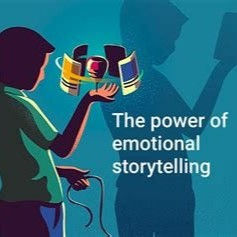These 3 Ads Made Millions—And The Genius Behind Them Will Change How You Think About Marketing
- Harsh Thariani
- May 7
- 2 min read
Updated: May 10
Some ads fade into the background. Others become part of culture. What’s the difference? Behind every iconic campaign is a brilliant strategy—rooted in psychology, emotion, and killer timing. Whether you're studying advertising, branding, or building your own startup, these 3 ad campaigns are basically your free masterclass.

Let’s break them down—deep.
—
🧠 1. Nike’s “Just Do It”📅 Year: 1988📈 Impact: Took Nike from a niche running brand to a global lifestyle icon. Sales jumped from $800 million to $9.2 billion in under a decade.
Why It Worked:
Universality: “Just Do It” applies whether you’re a marathon runner or just trying to get out of bed. That kind of broad relevance is gold.
Emotional Connection: The campaign didn’t sell shoes—it sold belief. It tapped into human ambition, struggle, and personal grit.
Consistency: Nike didn’t drop the line after one season. It became the backbone of the brand—used for decades, adapted to new generations.
Student Takeaway:Design messaging that hits both the heart and the hustle. When your slogan taps into identity, it doesn’t just promote—it inspires. Try asking: “How does my product/service help someone become who they want to be?”
💡 Try This: Write 3 versions of a campaign idea—one focused on features, one on emotions, and one on identity. Which one hits hardest?
—
🎭 2. Old Spice’s “The Man Your Man Could Smell Like”📅 Year: 2010📈 Impact: Revived a dying brand. Sales of Old Spice body wash doubled within months.
Why It Worked:
Character Branding: The ad introduced a wildly memorable persona—suave, funny, unpredictable.
Surreal Humor: It broke the rules of traditional advertising with one continuous shot, bizarre transitions, and rapid-fire delivery.
Audience Shift: Old Spice wasn’t just talking to men—it targeted women buying for men. Smart.
Student Takeaway:When the market zigs, you zag. Don’t just look at your competitors—flip the tone, twist the target audience, or create a character that people remember long after the ad ends.
💡 Try This: Reframe your product or brand from the perspective of someone unexpected—a sibling, a grandparent, even a dog. Weird often = memorable.
—
🌍 3. Dove’s “Real Beauty” Campaign📅 Year: 2004–ongoing📈 Impact: Dove saw a major boost in global brand loyalty. Sales increased from $2.5B to $4B in the first 10 years.
Why It Worked:
Social Relevance: At a time when beauty standards were rigid and unrealistic, Dove stepped in with a message: “You are beautiful the way you are.”
Authenticity: The campaign used real women, not models. That shock of realism created trust.
Brand Evolution: Dove shifted from being just a soap company to a champion of self-esteem.
Student Takeaway:Great marketing isn’t just about the product—it’s about standing for something. When you can tie your brand to a cultural movement, you build loyalty far deeper than price or packaging ever could.
💡 Try This: Write down 3 social or cultural values your audience cares about. How can your project or brand align with one of them authentically?
—
🧩 Final Thoughts:These three ads didn’t win just because they were clever—they won because they understood their audience, told a story, and tapped into something bigger than a product.
Whether you’re pitching in a class or planning a reel on Instagram, remember this: emotion beats explanation, identity beats features, and relevance beats noise.




Comments